Columbia sets 2 p.m. deadline for all anti-Israel protesters to leave ‘tent city’ — or else

Columbia University has warned anti-Israel protesters they’ll be suspended if they don’t clear out of their tent encampment by 2 p.m. Monday — just hours after the Ivy League’s embattled president Minouche Shafik admitted that all other negotiations had failed.
The protesters were given the ultimatum as NYPD buses were spotted arriving outside the Morningside Heights campus Monday morning.
“It is important for you to know that the university has already identified many students in the encampment,” a letter warning students of the looming deadline read. “If you do not leave by 2 p.m., you will be suspended pending further investigation.”
“If you voluntarily leave by 2 p.m., identify yourself to a university officials, and sign the provided form where you commit to abide by all university policies through June 30, 2025, or the date of the conferral of your degree, whichever is earlier, you will be eligible to complete the semester in good standing,” added the letter, shared by the Columbia Students for Justice in Palestine.
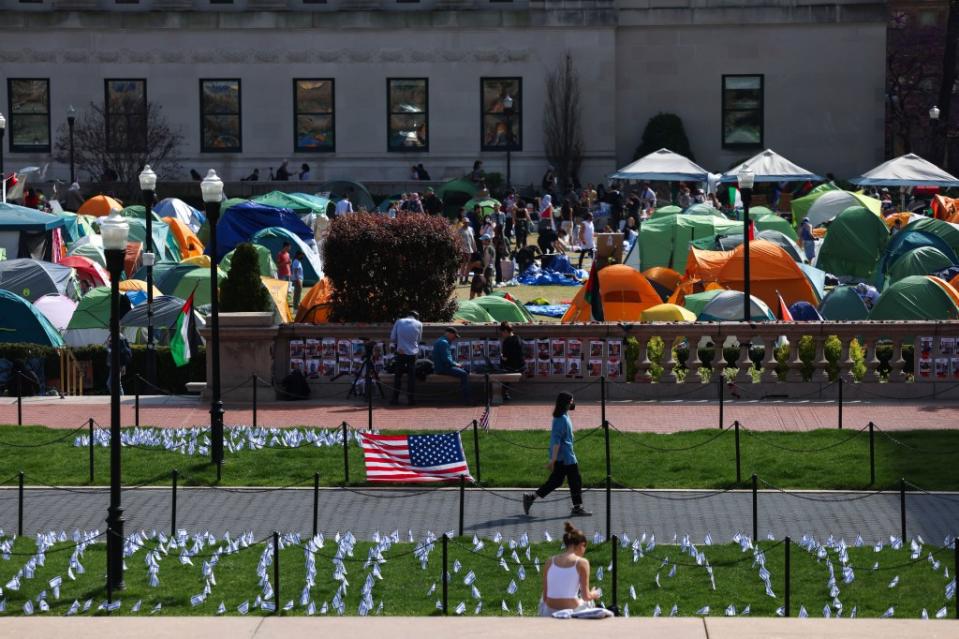
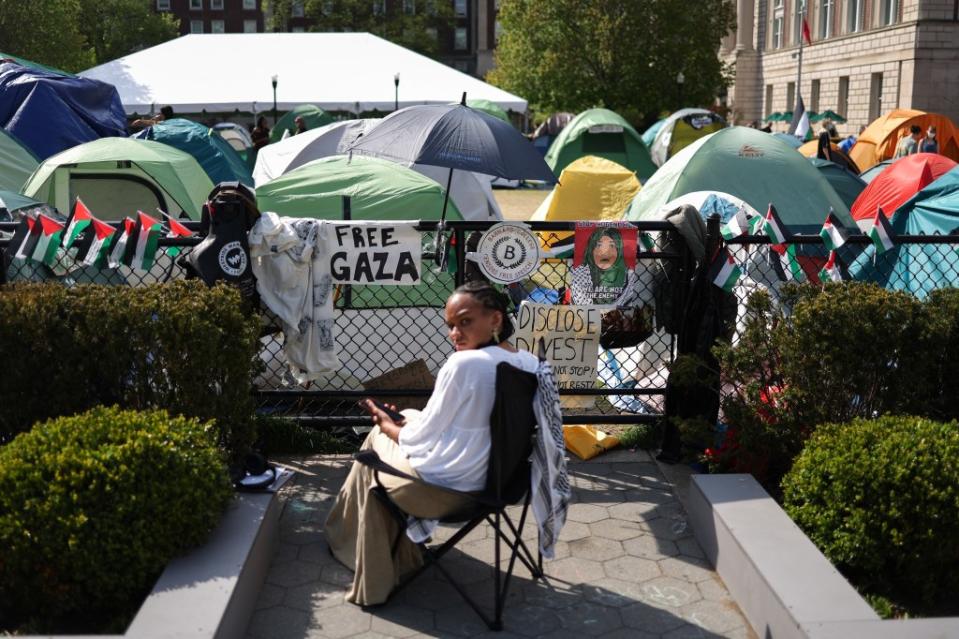
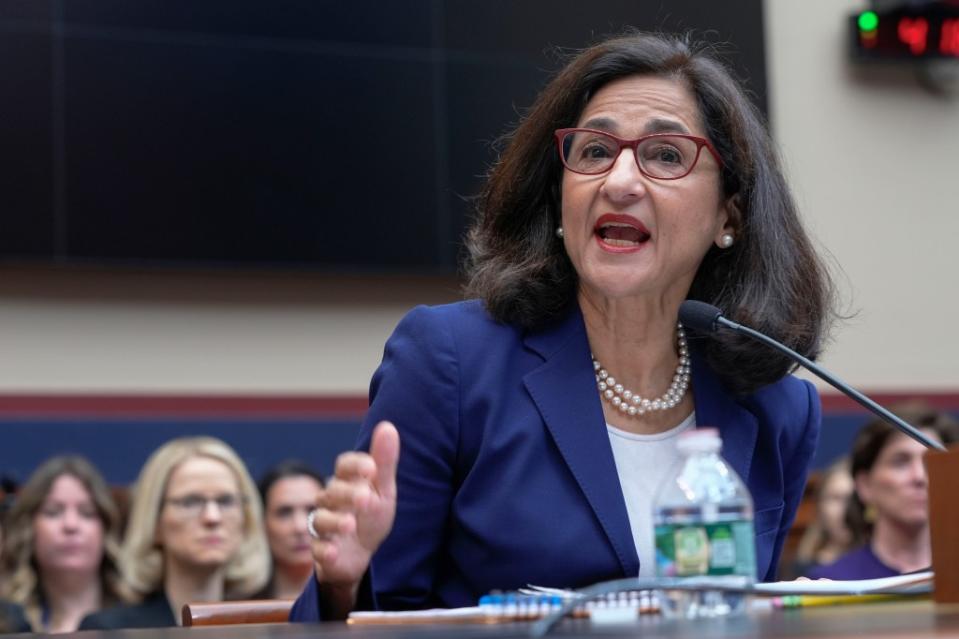
It comes after Shafik had earlier urged the student protesters to “voluntarily disperse” and dismantle the encampment that has plagued the Ivy League campus for more than a week, saying Columbia was looking at other “internal options to end this crisis as soon as possible.”
The president acknowledged the encampment was making Jewish students uncomfortable and had caused many to flee campus, but stopped short of making any apology.
Follow The Post’s coverage of the pro-terror protests at Columbia University:
NYPD ‘mobilizing’ for action at Columbia, but admin has not asked for cops yet
Columbia anti-Israel protesters are defying order to disperse by 2 p.m.: Here’s what happens next
House Democrats demand Columbia University trustees disband ‘tent camp’ or resign
She said academic leaders had been trying to engage with student protesters since last Wednesday.
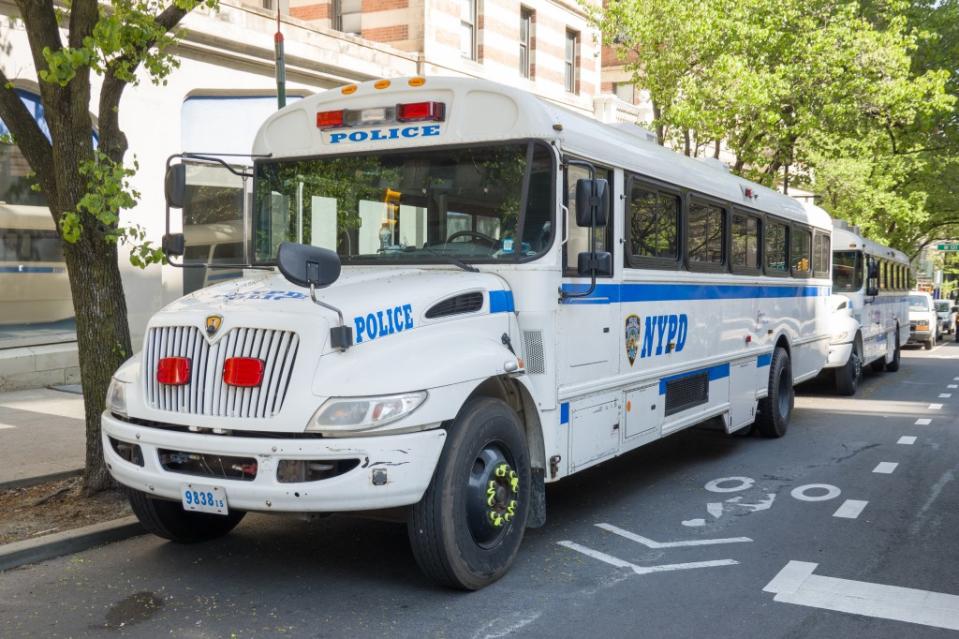
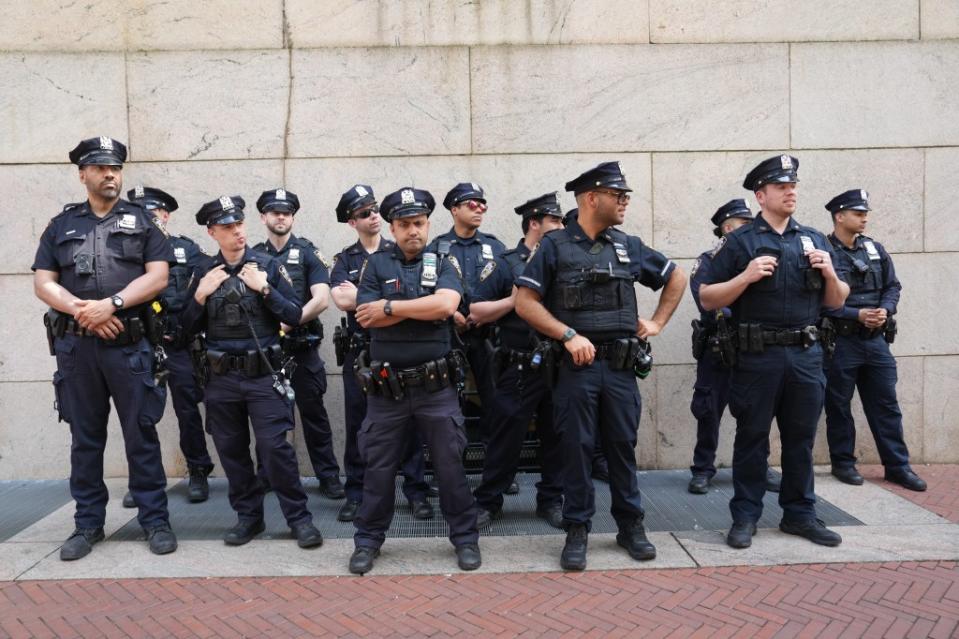
“Regretfully, we were not able to come to an agreement,” Shafik said in a statement.
“We are consulting with a broader group in our community to explore alternative internal options to end this crisis as soon as possible,” she continued, adding that the administration wished protesters “had reached a different outcome.”
It comes as college presidents across the country are making the decision to crack down and send in law enforcement to remove anti-Israel protesters, who are causing chaos and disrupting classes.
More than 200 protesters were cuffed over the weekend at colleges including Northeastern University, Arizona State University, Indiana University and Washington University.
Follow The Post’s live blog for the latest on Columbia University’s anti-Israel protests
Still, Columbia’s encampment was allowed to continue with no end in sight — even after the NYPD was called in for an initial clampdown on April 18 that saw more than 100 protesters cuffed and hauled away.
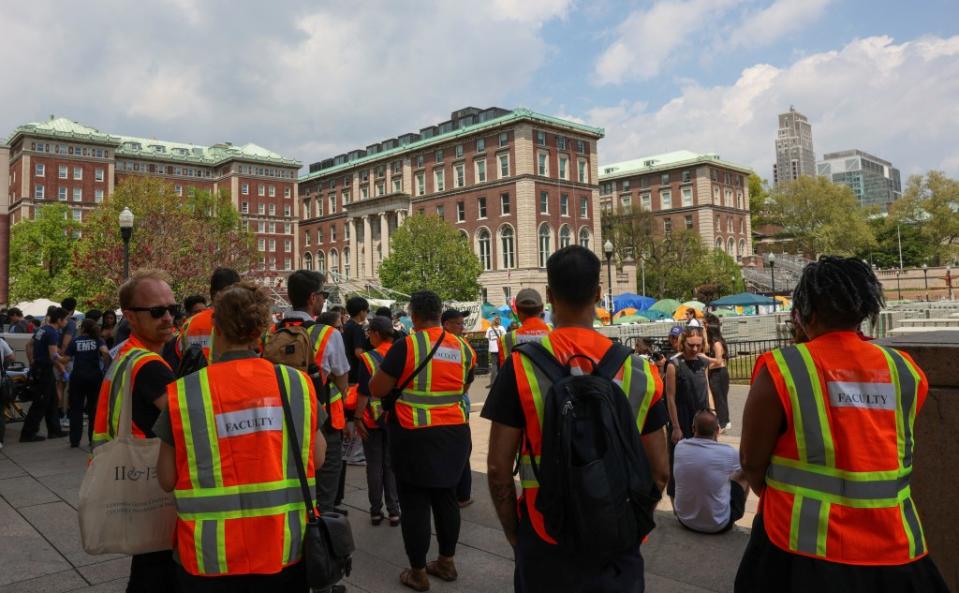
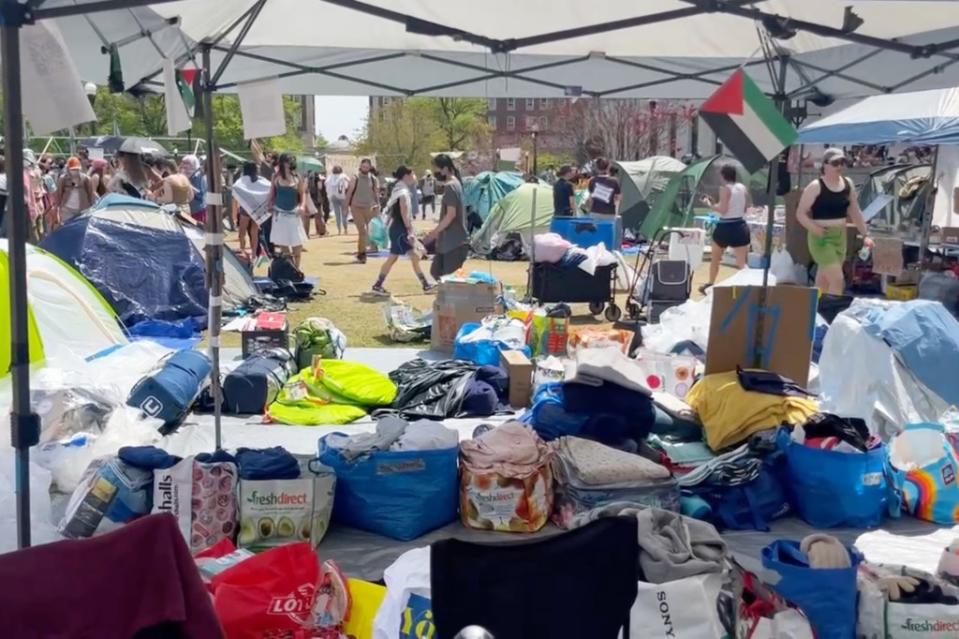
Meanwhile, a handful of House Democrats — led by Reps. Josh Gottheimer of New Jersey and Dan Goldman of New York — on Monday urged Columbia’s board to “act decisively” to end the chaos and disband the encampment.
“If any Trustees are unwilling to do this, they should resign so that they can be replaced by individuals who will uphold the University’s legal obligations under Title VI,” the lawmakers wrote in a letter, referring to the federal law that protects students from discrimination.
Shafik said college officials had aimed to reach a “collaborative resolution” that would see the encampment torn down and a commitment from protesters to adhere to certain rules — including demonstrating within certain places and times in order to not disrupt other students.
“Both sides in these discussions put forward robust and thoughtful offers and worked in good faith to reach common ground. We thank them all for their diligent work, long hours, and careful effort and wish they had reached a different outcome,” she said.
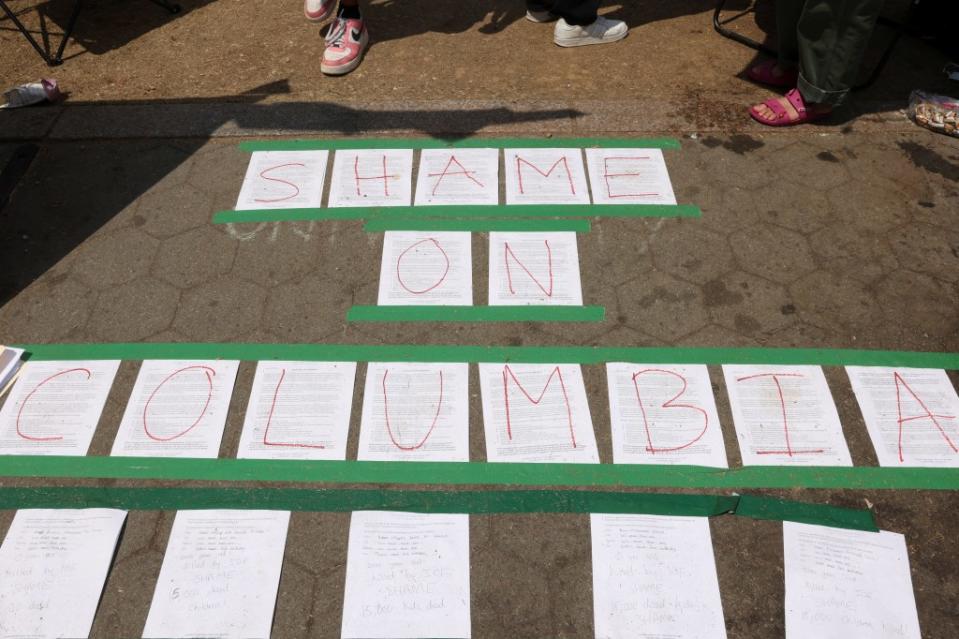
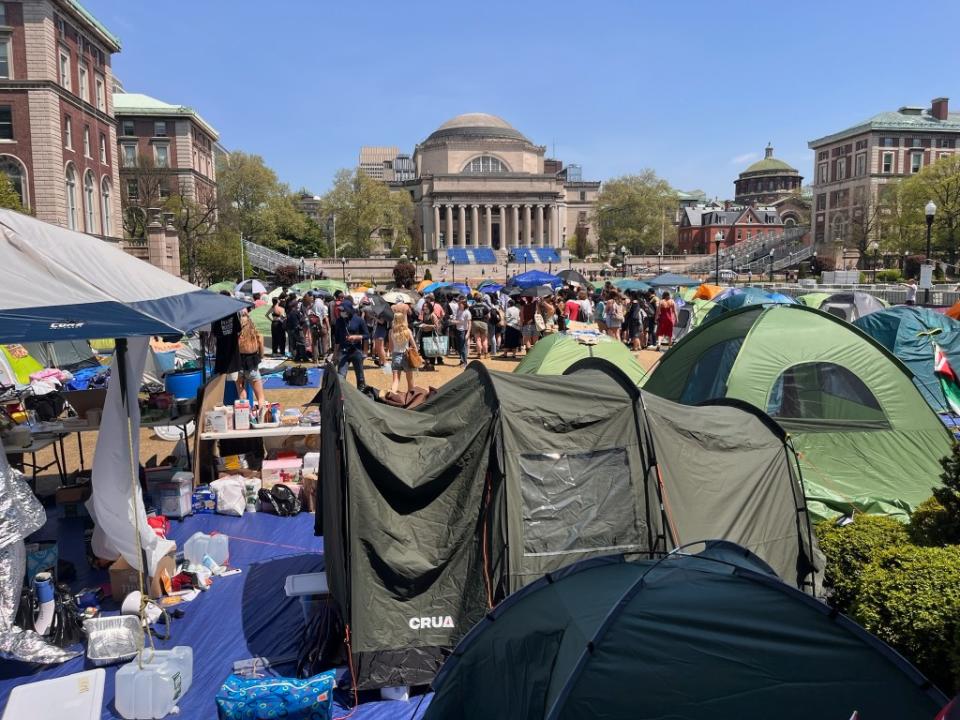
Shafik said students had been given ample space in recent months to protest the Gaza war on campus, but acknowledged the recent encampment had created a “hostile” and “unwelcoming environment” for Jewish students and faculty.
“I know that many of our Jewish students, and other students as well, have found the atmosphere intolerable in recent weeks. Many have left campus, and that is a tragedy,” she said.
The president said Columbia had “no intention of suppressing speech or the right to peaceful protest,” and that demonstrations could continue on campus with two days’ notice and in authorized locations only.

